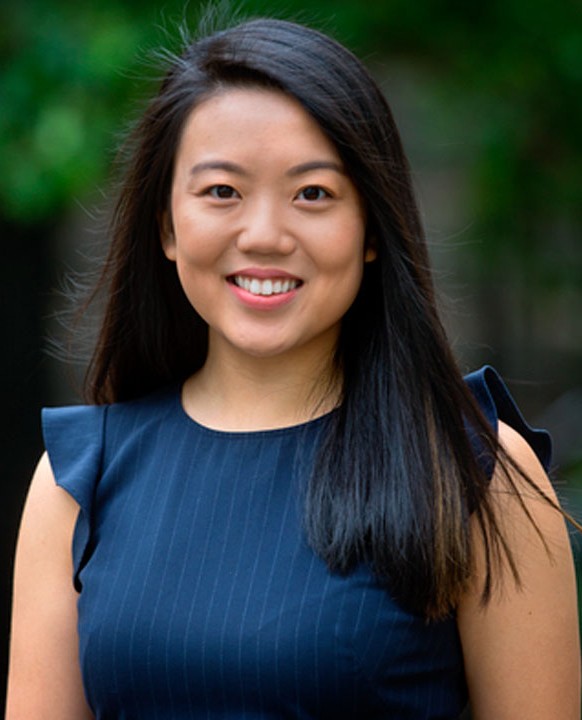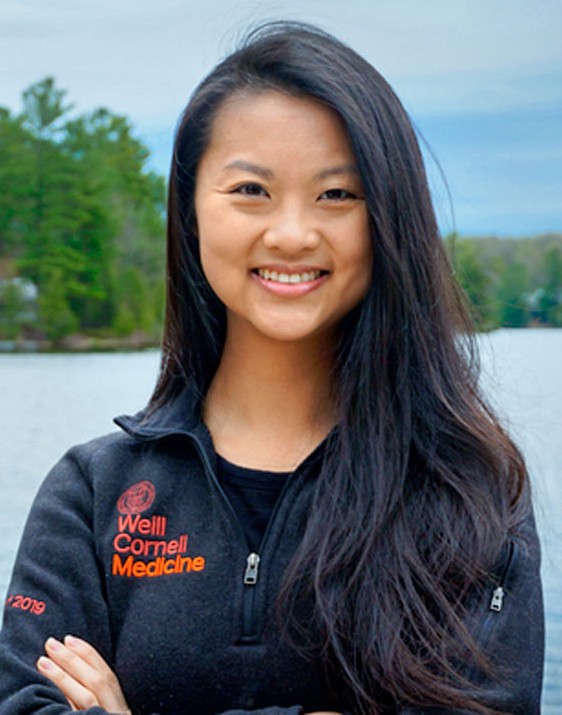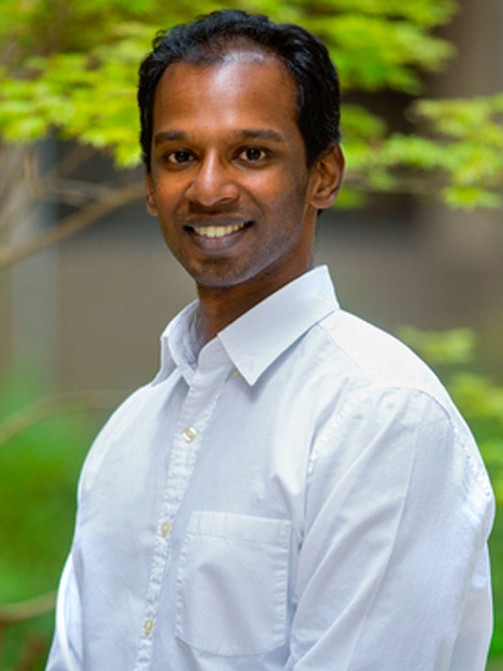Joining the health care ranks: Graduating during a pandemic
By Kathryn Inman
The prospect of residency typically brings jitters to newly minted doctors as they prepare to start the next phase of their medical training, and the level and scope of their patient care responsibilities increases.
But the transition has become far more complex with numerous unknowns surrounding the ongoing COVID-19 pandemic, which will drive changes in clinical care and in their residency training. In a moment of deep uncertainty about the future course of the new coronavirus’s spread and much still to learn about how to effectively treat it, members of Weill Cornell Medicine’s Class of 2020 are confronting a mix of unique challenges and emotions, even as they celebrate becoming physicians.
Joanna Gao was two shifts into her emergency medicine sub-internship when one of the first suspected COVID cases in New York City appeared in the emergency department, in early March. Protocols and procedures were quickly put in place to prepare the hospital and its staff and ensure continued care for the other patients.
“Things were moving so fast, on the patient care side and on the education side. It was actually amazing to see everything come together and to watch as a future physician,” she said. “But there was almost no time for us as students to stop and think about what we were facing.”
When the monthlong sub-internship was moved to virtual instruction after less than two weeks, as part of the Association of American Medical College guidance to protect students, Gao had more time to reflect.
“I may have been a bit naive then – ‘I’m young and healthy,’ I was thinking,” she said. “But then we got more information about the disease, and how it was affecting so many people, and affecting the loved ones of my friends. Now I think all of us are aware on some level of our own vulnerabilities.”
Dr. Yoon Kang, senior associate dean of education for medical education at Weill Cornell Medicine, said the pandemic will shape the physician identities of the 109 members of the Class of 2020. While new medical graduates typically benefit from a period of adjustment in which they transition into residency, the pandemic may not afford that luxury for this year’s residents.
“Our medical students are entering the field, and developing their understanding of themselves as doctors and healers, during a time of unprecedented need,” Kang said. “As the pandemic evolves and the country looks to medical professionals for guidance and care, our graduates will have the skills and opportunity not only to become leaders in medicine, but to gain extraordinary empathy for patients and understanding of health care as an interdependent system. We are confident that they will adapt and shape the ‘new normal’ in clinical care and rise to the challenge as they begin their residencies on the front lines of history.”
With their classes concluding early and the COVID-19 crisis escalating, many graduating students looked for ways to help even before starting their residencies in July. So when Weill Cornell Medicine gave fourth-year students the opportunity to graduate in April – to support health care efforts at NewYork-Presbyterian through remote work such as follow-up calls to discharged patients, assisting with research and optimizing technology – more than half the class seized upon it.
Fourth-year student Jenny Xia remembers how she felt watching the SARS-CoV-2 outbreak escalate in mid-March. She was in quarantine in her hometown of Toronto, having just returned from a month in Thailand, where she was working at a clinic for refugees. As she watched the pandemic unfold, she realized that there was little that could have prepared new or seasoned doctors for the breakneck pace of health care that has characterized the COVID-19 crisis.
“I was definitely feeling nervous and unprepared,” she said. “There was so much I needed to learn – I always thought I would have more time to adjust to treating patients.
“But as I followed the stories of my friends and mentors and other hospital workers, I was inspired by their spirit, strength and heroism,” said Xia, who will be doing her residency in emergency medicine at NewYork-Presbyterian/Weill Cornell Medical Center. “I’m no less scared now, but I am ready and eager to join them.”
A time for innovation
When Dr. Pradeep Ambrose decided to focus his studies on virology in 2013, he couldn’t have imagined how relevant his work investigating RNA viruses would be in 2020, when he completed his doctorate in the Physiology, Biophysics and Systems Biology program at Weill Cornell Graduate School of Medical Sciences. He also couldn’t have imagined defending his dissertation over Zoom, with 120 colleagues and friends watching across the country.
While the online shift has been one of the most immediate effects of the health care crisis on graduating doctoral students, it is the investigative drive sparked by the pandemic that will have a lasting impact on both the students and the scientific field, said Dr. Barbara Hempstead, dean of the Weill Cornell Graduate School of Medical Sciences.
“Students heavily invested in their ongoing research are not necessarily changing course – other areas of disease are as relevant now as they were before, and that’s important work,” Hempstead said. “Still, they have demonstrated that it’s important to understand the science behind the virus. Our students are looking at how the virus impacts other areas they’re studying, like cardiovascular disease, hypertension and obesity. Our students and faculty have also taken real initiative, starting journal clubs to review the latest research, and we’re very proud of that sense of scientific curiosity, which has enriched their academic experience.”
Because the SARS-CoV-2 virus that causes COVID-19 is an RNA virus, Dr. Ambrose has had the opportunity to help with coronavirus research efforts occurring in the labs of his mentors, Dr. Christopher Mason, co-director of the WorldQuant Initiative for Quantitative Prediction at Weill Cornell Medicine, and Dr. Charles Rice, the Maurice R. and Corinne P. Greenberg Professor in Virology at The Rockefeller University. He now spends his days working remotely with different teams on experiment design, research and data analysis.
“Over the past seven years, I’ve built a skill set that’s very useful right now,” Ambrose said. “It’s been an amazing experience, because it’s so rare that something like this happens – to be a part of groundbreaking discovery, and to see all the work that other teams are doing, both on the research and clinical side, for this one purpose.”
For the majority of Weill Cornell’s graduating students, the past few months have been bittersweet. Many of the final-year milestones and events have turned into virtual celebrations, including Match Day for the medical students, and soon Commencement – a ceremony traditionally held at Carnegie Hall, filled with faculty, family and friends.
“As we celebrate our final achievements, we won’t have the opportunity to physically be with the people who struggled alongside us all these years, which is disappointing,” Xia said. “It would have meant a lot to give hugs and high fives to all of my classmates and friends. Still, I feel proud, almost lucky even, to be able to say for the rest of my life, ‘I didn’t have a traditional graduation because I became a doctor during the COVID pandemic and we jumped right onto the frontlines.’”
Kathryn Inman is associate editor for Weill Cornell Medicine.
Media Contact
Get Cornell news delivered right to your inbox.
Subscribe



